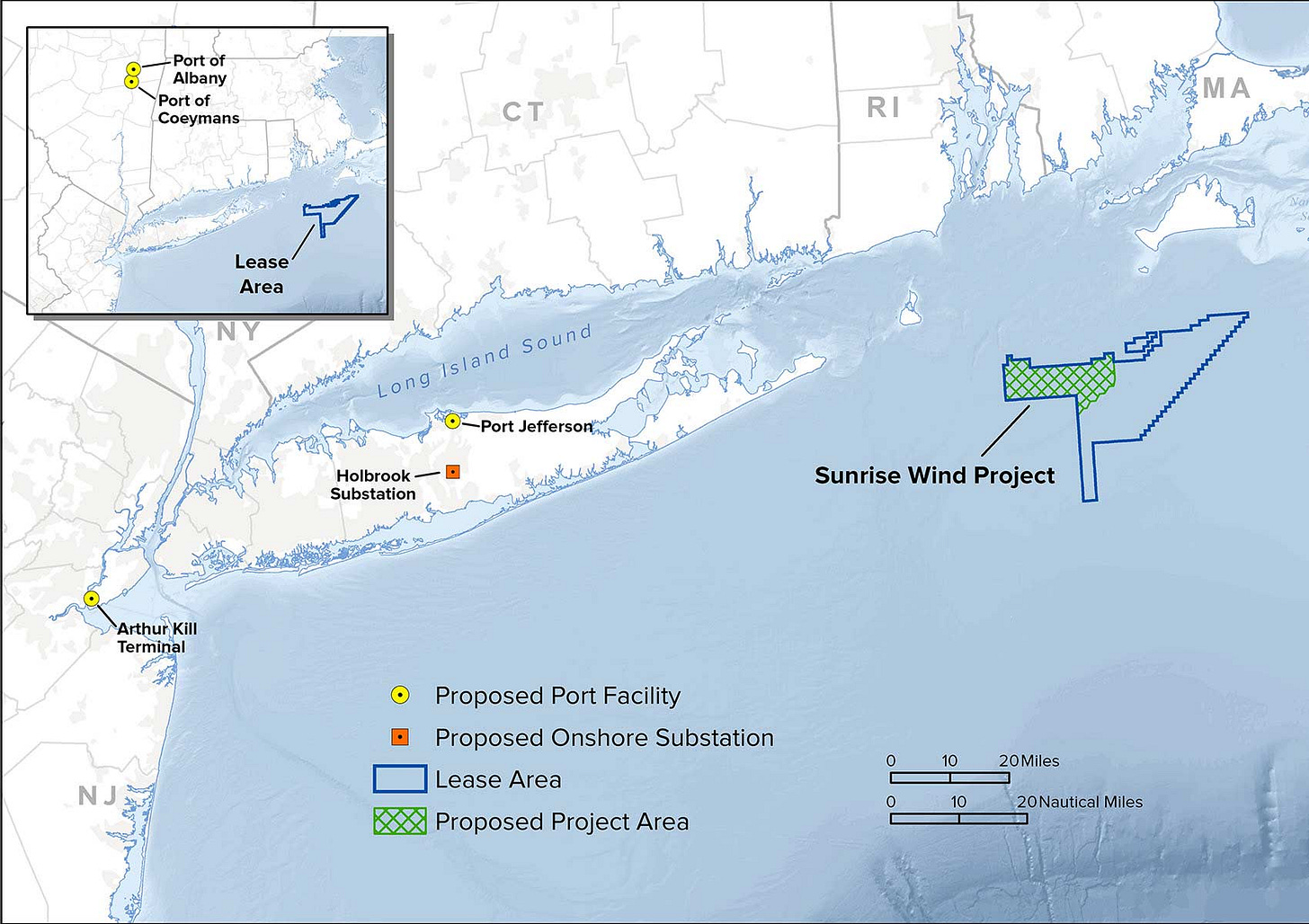𝙒𝙝𝙖𝙩 𝙘𝙖𝙪𝙜𝙝𝙩 𝙢𝙮 𝙖𝙩𝙩𝙚𝙣𝙩𝙞𝙤𝙣? Orsted has taken a $600 million (4.3 billion Danish crowns) impairment on the 924 MW Sunrise Wind project, located 30 miles east of Montauk, New York, citing delays and increased costs.
𝙒𝙝𝙮 𝙞𝙩 𝙢𝙖𝙩𝙩𝙚𝙧𝙨? The Sunrise Wind project exemplifies the significant challenges facing U.S. offshore wind development, including regulatory delays, inflation-driven cost increases, high interest rates, supply chain disruptions, and workforce shortages.
These issues have turned a project awarded in 2019 with an expected 2024 operational date into a delayed venture now projected for 2027, and today’s $600 million impairment. And with President Trump suspending new federal offshore wind leasing, it looks like more headwinds (excuse the pun) are ahead for offshore wind.
What changes do you think could reinvigorate the industry?

𝘿𝙚𝙩𝙖𝙞𝙡𝙨:
Timeline: The Sunrise sites were originally awarded in 2019 and expected to be operational in 2024, but faced delays due to regulatory and logistical challenges. The project's commissioning has been postponed to the second half of 2027, reflecting challenges across the U.S. offshore wind industry.
Permitting Delays: The Bureau of Ocean Energy Management (BOEM) approved the Construction and Operations Plan only in March 2024, slowing progress. Delays in federal permitting for several U.S. offshore wind projects, including Sunrise Wind, were attributed to complex reviews required for environmental impact assessments and stakeholder consultations.
Supply Chain Issues: Global disruptions and rising material costs during and after the COVID-19 pandemic delayed key component deliveries. Escalating costs due to global inflation and higher raw material prices further impacted project timelines and budgets.

